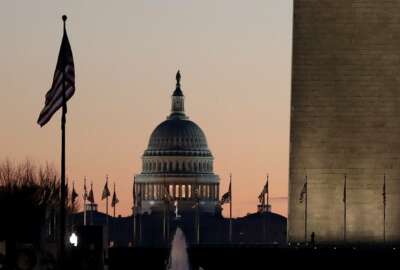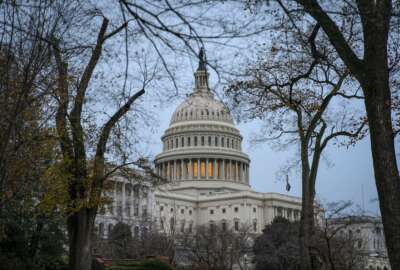
Senate sends shutdown-averting spending bills, federal pay raise to Trump’s desk
The Senate has sent two minibus spending bills to the president's desk for his signature. President Donald Trump must sign both by Friday to avoid a second...
The Senate passed two “minibus” spending bills on Thursday, sending both to the president’s desk for his signature one day before current government funding runs dry.
President Donald Trump must take action before 11:59 p.m. on Friday in order to avoid a second government shutdown in 2019.
One bill includes a 3.1% federal pay raise, the largest in a decade for the civilian workforce. Specifically, it includes a 2.6% across-the-board increase in base pay with an additional 0.5% in locality adjustments, for a total average of 3.1%.
The minibus with the federal pay raise, which includes four appropriations bills, covers spending for the Defense Department, as well as the departments of Homeland Security, Commerce, Justice, Treasury and others. It easily cleared the Senate with an 81-11 vote.
The Senate also passed a second “minibus,” a package of eight appropriations bills, with a 71-23 vote. This minibus covers the departments of Agriculture, Labor, Education, Interior, Transportation and State, as well as Veterans Affairs, and Housing and Urban Development, among others.
The House had easily passed both minibus spending bills earlier this week.
If the 2020 adjustment does clear the president’s desk, it will be the largest federal pay raise employees have seen in at least a decade. Civilian employees last came close to such a raise back in 2008, when they received a 3.5% pay adjustment.
The 3.1% federal pay raise is also in line with the pay adjustment members of the military will receive in 2020.
To make the federal pay raise official, the president must still issue an executive order instructing agencies to physically implement new locality pay rates. In the past, this executive order has come late in December, once the Office of Personnel Management has finalized pay tables for all 53 distinct locality areas.
Federal pay raises will go into effect on the first day of the first applicable pay period of the new year.
The “minibus” also freezes pay at 2019 levels for the vice president and senior political officials appointed under the Executive Schedule.
Pay rates for some GS-15s will continue to be tied to Executive Schedule pay rates, according to the bill.
This impacts an increasingly large population of federal employees who fall victim to salary compression each year. The spending bill does, however, grant a few exceptions. Employees in this situation who move to another position with a special pay rate that exceeds the GS or Executive Schedule rates could, in that particular case, receive a higher salary.
In total, both spending bills are worth some $1.4 trillion and conform to the new spending caps set under the Bipartisan Budget Act of 2019, which Congress and the White House agreed to earlier this summer.
Both minibus spending bills also cover a huge variety of policy and other issues.
The Census Bureau would receive $7.6 billion, $1.4 billion more than what the president requested, for the upcoming decennial count.
The IRS would get more than $11.5 billion in 2020, including $30 million more for its ongoing business systems modernization, $150 million more for enforcement efforts and $20 million more for taxpayer services over the previous year.
The spending bills also fund the upcoming presidential transition with $9.2 million for the General Services Administration’s transition service.
The minibus spending bills also restrict agencies from moving, transferring or relocating any offices, programs, employees of organizational functions without permission from Congress. This language has appeared in past appropriations bills and has been the subject of recent debates between Congress and the executive branch, especially as the Trump administration pursued the relocation of two Agriculture research bureaus to Kansas City, the relocation of the Bureau of Land Management to Colorado and the proposed merger of the Office of Personnel Management with the General Services Administration.
In addition, the spending bills prevent agencies from prohibiting their employees from communicating with members of Congress, staff or individual committees and subcommittees. In addition, agencies cannot take disciplinary action against employees who do communicate with Congress.
Some agencies in recent years have implemented policies that prevented employees from communicating with Congress or from responding to information requests from ranking members of committees, much to the ire of oversight and advocacy organizations.
Another provision prevents agencies from monitoring their employees’ internet use at federal offices.
Agencies, as usual, have specific requirements to send detailed reports to their organization’s inspector general about official travel and conference spending.
And another provision formally prevents agencies from withholding records, documents and other materials from their organization’s inspector general.
Copyright © 2025 Federal News Network. All rights reserved. This website is not intended for users located within the European Economic Area.
Nicole Ogrysko is a reporter for Federal News Network focusing on the federal workforce and federal pay and benefits.
Follow @nogryskoWFED





